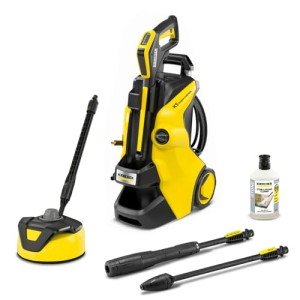Understanding Power Tools: Essential Guide for DIY Enthusiasts and Professionals
Power tools are indispensable instruments that change how tasks-- from simple repairs to complicated building and construction activities-- are carried out. The advancement of these tools has actually significantly boosted effectiveness, precision, and safety in numerous fields, including building and construction, woodworking, metalworking, and vehicle repair work. In this article, we will check out various types of power tools, their applications, safety measures, upkeep, and frequently asked concerns.
Kinds Of Power Tools
Power tools can be broadly classified into 2 main types: corded tools and cordless tools. Each classification consists of a variety of gadgets matched for specific tasks. Below is a table summarizing some typical types of power tools and their applications.
| Kind Of Power Tool | Common Examples | Primary Applications |
|---|---|---|
| Drills | Cordless Drills, Hammer Drills | Drilling holes in wood, metal, or masonry |
| Saws | Circular Saws, Jigsaws, Miter Saws | Cutting wood, metal, and other products |
| Sanders | Orbital Sanders, Belt Sanders | Smoothing surfaces and preparing products |
| Mills | Angle Grinders, Bench Grinders | Grinding, cutting, and polishing products |
| Nailers | Cordless Nail Guns | Securing materials using nails or staples |
| Effect Drivers | Cordless Impact Wrenches | Driving screws and bolts rapidly and efficiently |
Applications of Power Tools
Power tools have a wide selection of applications throughout different sectors. Here are a few of the primary environments where power tools are commonly made use of:
- Construction: Drills, saws, and nailers are vital for framing, roof, and general building jobs.
- Woodworking: Saws, sanders, and routers are popular among woodworkers for crafting furniture and cabinetry.
- Metalworking: Angle mills, drill presses, and welders are important for those dealing with metal structures and elements.
- Automotive: Impact wrenches and diagnostic tools are frequently used in repairs and maintenance of automobiles.
- Home Improvement: For DIY tasks, house owners typically employ drills, saws, and nail weapons for renovations and repairs.
Precaution
While power tools are beneficial, they can also posture substantial dangers if not used correctly. Here are important precaution to consider when using power tools:
- Personal Protective Equipment (PPE): Always wear suitable equipment, such as security goggles, gloves, and ear defense.
- Read the Manual: Understanding the tool's handbook is essential for safe operation.
- Examine Tools Regularly: Before each usage, look for damage or wear that might affect performance or safety.
- Secure Workpieces: Use clamps or vises to secure your workpieces to avoid movement throughout operation.
- Maintain a Clean Work Area: Clear your workspace of clutter to decrease the threat of mishaps or injuries.
- Be Aware of Surroundings: Ensure the location is devoid of any hazards, consisting of diversions or possible journey dangers.
Maintenance of Power Tools
Regular maintenance of power tools extends their life and boosts performance. Here are some practices to keep tools in leading condition:
- Cleaning: Remove dust and debris from the tool after each use. Use proper cleaners for different kinds of tools.
- Lubrication: Regularly oil moving parts according to the maker's recommendations.
- Battery Care: For cordless power tools, correctly charge and store batteries to keep their life-span.
- Blade Replacement: Sharp blades ensure cleaner cuts; replace dull or damaged blades as required.
- Calibration: Periodically check and calibrate tools to guarantee precision in efficiency.
FAQs about Power Tools
1. What is the difference between corded and cordless power tools?
- Corded tools are powered by electricity through a plug, offering consistent power for heavy tasks. Powertools work on rechargeable batteries, providing portability and benefit however might have power limitations.
2. How do I choose the ideal power tool for my task?
- Think about the material you'll be working with, the complexity of the project, and whether you need portability. Research tool requirements and compatibility with your tasks before purchasing.
3. Are there any specific safety requirements for power tools?
- Yes, many countries have established security standards for power tools, ensuring they fulfill extensive manufacturing standards. Always look for accreditations such as ANSI (American National Standards Institute) or ISO (International Organization for Standardization).
4. Can I utilize power tools inside your home?
- Many power tools can be utilized indoors, however ensure appropriate ventilation and think about noise levels. Tools that produce fumes or dust needs to be used in well-ventilated areas.
5. What upkeep jobs should I carry out routinely?
- Regular tasks include cleansing, inspecting for damage, lubricating moving parts, and charging or preserving batteries for cordless tools.
In summary, power tools are a necessary part of both professional and DIY projects. Understanding the different types of tools, their applications, precaution, and maintenance practices ensures efficient and safe usage. By arming oneself with knowledge and preparation, individuals can with confidence take on any job, from home repair work to intricate construction tasks. Power tools not only make work simpler however also boost imagination, allowing users to transform their visions into reality.

